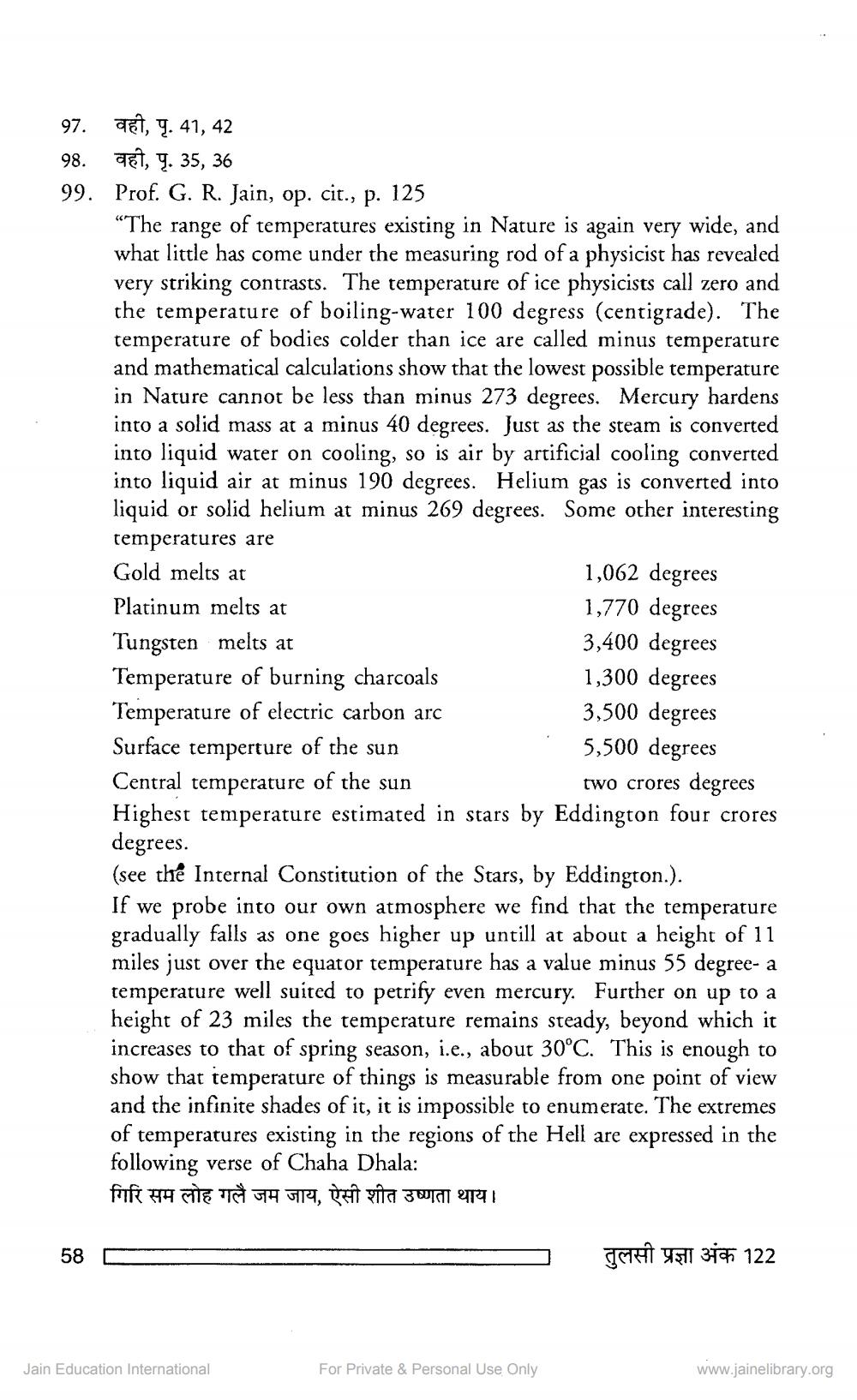________________
97.
वही, पृ. 41, 42
98. वही, पृ. 35, 36
99. Prof. G. R. Jain, op.
cit., P. 125
"The range of temperatures existing in Nature is again very wide, and what little has come under the measuring rod of a physicist has revealed very striking contrasts. The temperature of ice physicists call zero and the temperature of boiling-water 100 degress (centigrade). The temperature of bodies colder than ice are called minus temperature and mathematical calculations show that the lowest possible temperature in Nature cannot be less than minus 273 degrees. Mercury hardens into a solid mass at a minus 40 degrees. Just as the steam is converted into liquid water on cooling, so is air by artificial cooling converted into liquid air at minus 190 degrees. Helium gas is converted into liquid or solid helium at minus 269 degrees. Some other interesting temperatures are
58
Gold melts at
Platinum melts at
Tungsten melts at
Temperature of burning charcoals Temperature of electric carbon arc
of the sun
Surface temperture
of the sun
two crores degrees
Central temperature Highest temperature estimated in stars by Eddington four crores degrees.
1,062 degrees
1,770 degrees
3,400 degrees
1,300 degrees
3,500 degrees
5,500 degrees
(see the Internal Constitution of the Stars, by Eddington.).
If we probe into our own atmosphere we find that the temperature gradually falls as one goes higher up untill at about a height of 11 miles just over the equator temperature has a value minus 55 degree- a temperature well suited to petrify even mercury. Further on up to a height of 23 miles the temperature remains steady, beyond which it increases to that of spring season, i.e., about 30°C. This is enough to show that temperature of things is measurable from one point of view and the infinite shades of it, it is impossible to enumerate. The extremes of temperatures existing in the regions of the Hell are expressed in the following verse of Chaha Dhala:
गिरि सम लोह गलै जम जाय, ऐसी शीत उष्णता थाय ।
Jain Education International
For Private & Personal Use Only
तुलसी प्रज्ञा अंक 122
www.jainelibrary.org




